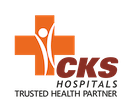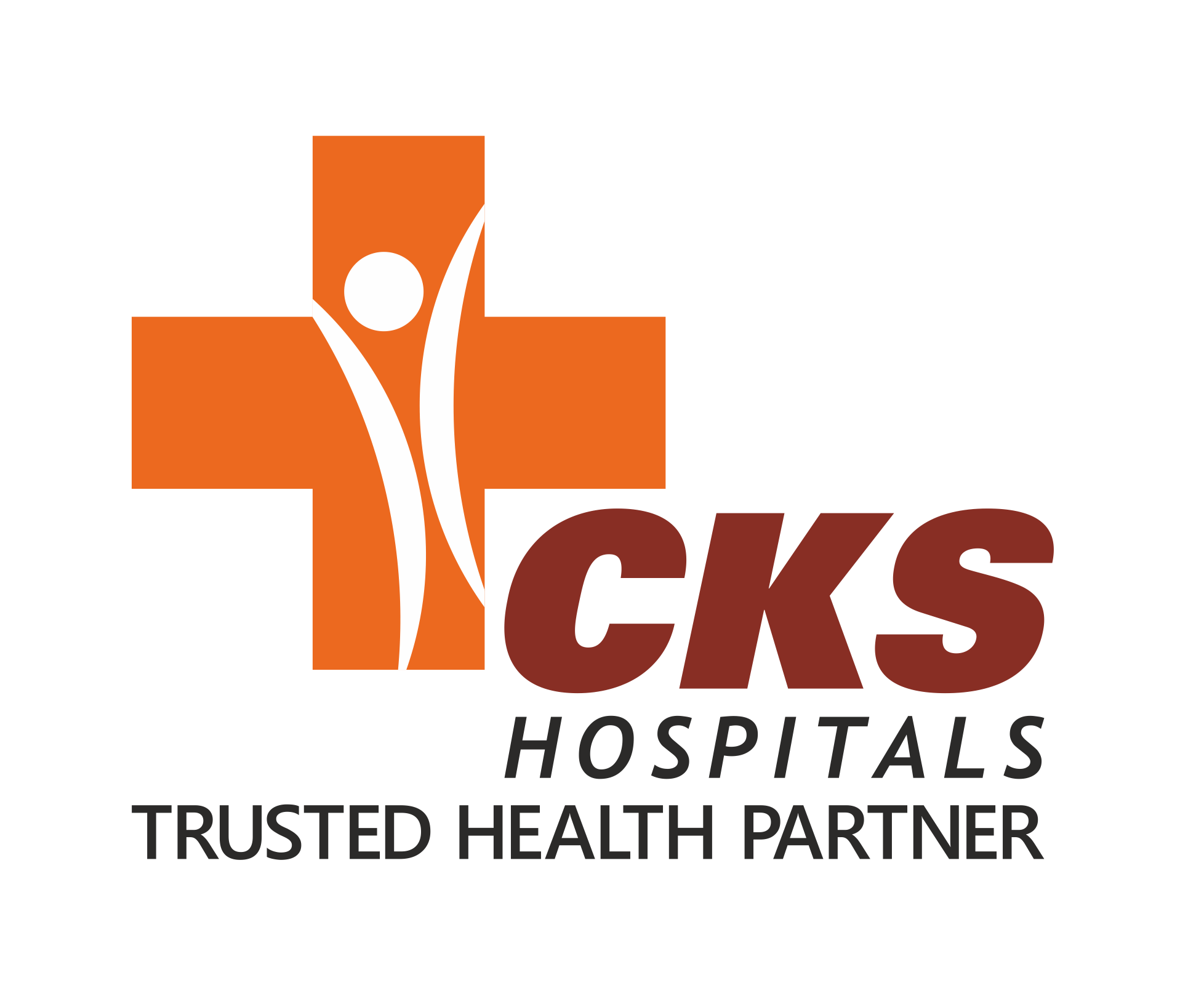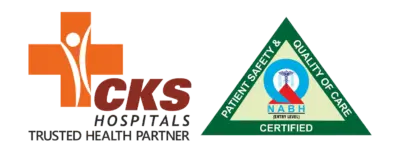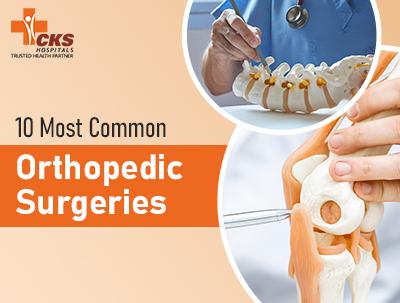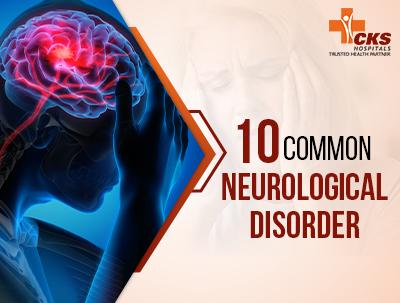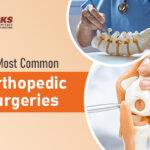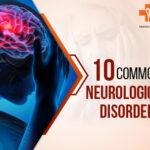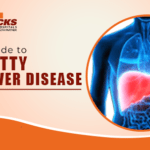Heart failure is a serious medical condition affecting millions worldwide, including in India. When medications aren’t enough, surgery may be necessary to improve heart function. In India, various types of heart failure surgeries are offered to alleviate symptoms and enhance quality of life. These surgeries include coronary artery bypass grafting (CABG), where blocked arteries are bypassed, and valve repair or replacement to fix damaged heart valves.
Additionally, procedures like heart transplants and left ventricular assist device (LVAD) implantation offer hope for those with severe heart failure. Let’s delve deeper into these surgeries to understand their role in combating heart failure in India. This blog provides an in-depth exploration of heart failure symptoms, diagnostic procedures, and the array of modern treatments available in India, focusing on the exemplary facilities at CKS Hospital led by the esteemed Dr. Prakash Chandwani.
What are the Symptoms of Heart Failure?
Heart failure manifests through a range of symptoms, each indicative of the heart’s inability to pump blood effectively. Recognizing these signs is crucial for early intervention and better treatment outcomes.
Symptoms include
Shortness of Breath (Dyspnea)
Individuals may experience difficulty breathing, especially during physical exertion or when lying down.
Fatigue and Weakness
Persistent tiredness and a lack of energy are common signs of heart failure, hindering daily activities.
Rapid or Irregular Heartbeat
An abnormal heart rate, either too fast or irregular, may signal underlying cardiac issues.
Swelling (Edema)
Fluid retention often leads to swelling in the legs, ankles, or abdomen, indicating compromised circulation.
Persistent Coughing
Fluid buildup in the lungs can cause a chronic cough, often accompanied by white or pink-tinged phlegm.
These symptoms can vary in intensity, and individuals experiencing any combination of these signs should seek prompt medical attention. Early detection allows for timely intervention and improved outcomes in heart failure treatment.
Diagnosis of Heart Failure
Accurate diagnosis serves as the linchpin for effective treatment. The diagnostic journey begins with a comprehensive physical examination, where healthcare providers assess vital signs, listen to the heart and lungs, and evaluate signs of fluid retention. Blood tests are employed to measure specific markers indicative of heart failure, such as B-type natriuretic peptide (BNP).
Imaging studies play a pivotal role in diagnosis, with chest X-rays revealing any enlargement of the heart or fluid accumulation in the lungs. Electrocardiograms (ECG or EKG) record the heart’s electrical activity, identifying irregularities in rhythm and potential damage. Echocardiograms, utilizing ultrasound waves, provide detailed images of the heart’s structure and function, helping determine the underlying cause of heart failure.
In some cases, more advanced imaging techniques, such as magnetic resonance imaging (MRI) or computed tomography (CT) scans, may be employed to gain a comprehensive understanding of the heart’s condition. The meticulous diagnostic process ensures a precise understanding of the severity and root causes of heart failure, guiding healthcare providers towards tailored treatment plans.
Types of Heart Treatment for Heart Failure
Coronary Angioplasty and Stent Implantation
Coronary angioplasty, a minimally invasive procedure, involves inserting a catheter with a balloon into the narrowed artery, inflating it to widen the vessel, and placing a stent to maintain the expanded state. This method effectively restores blood flow to the heart, alleviating symptoms and preventing complications.
Coronary Artery Bypass Graft Surgery (CABG)
CABG, commonly referred to as bypass surgery, is a surgical intervention that reroutes blood flow around blocked arteries. This procedure is critical for patients with severe coronary artery disease, ensuring improved blood circulation to the heart.
Implantable Cardioverter-Defibrillator (ICD)
ICD is a device implanted under the skin to monitor and correct irregular heartbeats, preventing sudden cardiac arrest. This technology acts as a safeguard, providing patients with a sense of security post-surgery.
Left Ventricular Assist Device (LVAD)
LVAD, a mechanical pump implanted in the chest, assists a weakened heart in pumping blood effectively. This device serves as either a temporary support or a bridge to transplant for patients awaiting heart transplantation.
Heart Valve Surgery/Valve Replacement
Heart valve surgery, a crucial intervention for heart failure, involves repairing or replacing damaged heart valves. This procedure restores proper blood flow, alleviating symptoms like shortness of breath and fatigue. Valve replacement entails substituting faulty valves with artificial ones, ensuring improved heart function and enhanced quality of life.
Cardiac Resynchronization Therapy (CRT)
CRT aims to enhance heart function by coordinating contractions between the heart’s chambers. In cases where coordination is disrupted, artificial pacemaker surgery becomes necessary to regulate the heart’s rhythm, ensuring optimal performance.
Heart Transplant
In severe cases, a heart transplant remains the ultimate solution, replacing a failing heart with a healthy donor heart. While this procedure poses challenges such as organ availability, it offers a life-saving option for eligible patients.
What are the risks?
Although heart failure surgeries have shown remarkable success, they are not without risks. Potential complications include infection, bleeding, blood clots, and adverse reactions to anaesthesia. However, advancements in medical technology and the expertise of skilled surgeons have significantly reduced these risks, making the benefits outweigh the potential drawbacks.
Post Treatment Care
The final act in the heart failure saga unfolds in the realm of post-treatment care, a crucial chapter that lays the foundation for sustained recovery. Patients are not mere spectators in this narrative; they are active participants, guided by healthcare providers towards a heart-healthy lifestyle.
Adhering to a balanced diet, rich in fruits, vegetables, and lean proteins, becomes a nutritional overture to recovery. Regular physical activity, carefully tailored to individual capabilities, orchestrates a symphony of cardiovascular health. Medication adherence is not a mere encore but a consistent refrain aimed at managing symptoms, improving heart function, and preventing complications.
Regular follow-ups with healthcare providers are not just routine; they are essential for monitoring progress, adjusting medications, and addressing any emerging concerns promptly. The post-treatment care symphony extends beyond the physical, delving into the emotional and psychological realms. Support groups, counselling services, and the resilience of the human spirit intertwine to compose a harmonious melody of recovery.
Surgery at CKS Hospital from Dr. Prakash Chandwani
CKS Hospital, under the expert guidance of Dr. Prakash Chandwani, stands as a beacon of excellence in cardiac care. The hospital delivers unparalleled treatment and facilities to heart failure patients, encompassing specialized centres such as the Cardiac Preventive & Nutrition Centre, Advanced Heart Failure Centre, Arrhythmia Centre, and an Echocardiography Lab equipped with cutting-edge 2D & 3D technology.
The advanced technology in the Cardiac Department at CKS Hospital underscores its commitment to providing the best care. The Cath Lab, featuring low-dose radiation penetration with the latest Japanese technology, ensures precision and safety in every procedure. The Cardiac OT, a state-of-the-art operating theatre, guarantees optimal conditions for surgeries without compromising safety and quality.
For coronary care patients, CKS Hospital provides a spacious 22-bedded CCU with Japanese fully motorized beds, enhancing both patient comfort and ergonomics for healthcare providers. This holistic approach to patient care distinguishes CKS Hospital as a leader in the best cardiology hospital in Jaipur.
Conclusion
In conclusion, navigating through the landscape of heart failure surgeries in India reveals a comprehensive approach to tackling this debilitating condition. From recognizing symptoms like shortness of breath and fatigue to precise diagnosis through imaging tests and biomarker analysis, patients are offered a range of treatment options. These include medication management, minimally invasive procedures like angioplasty, and more invasive interventions such as heart valve surgery and transplantation. Being the best hospital in Jaipur, CKS Hospital provides cutting-edge surgical interventions aimed at restoring heart function and improving patients’ quality of life
